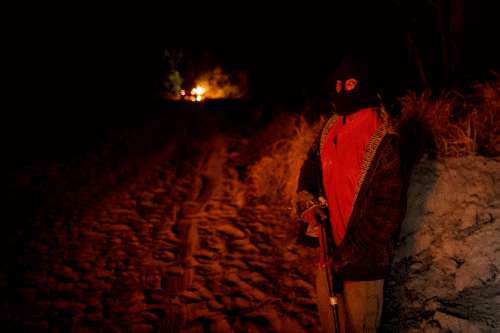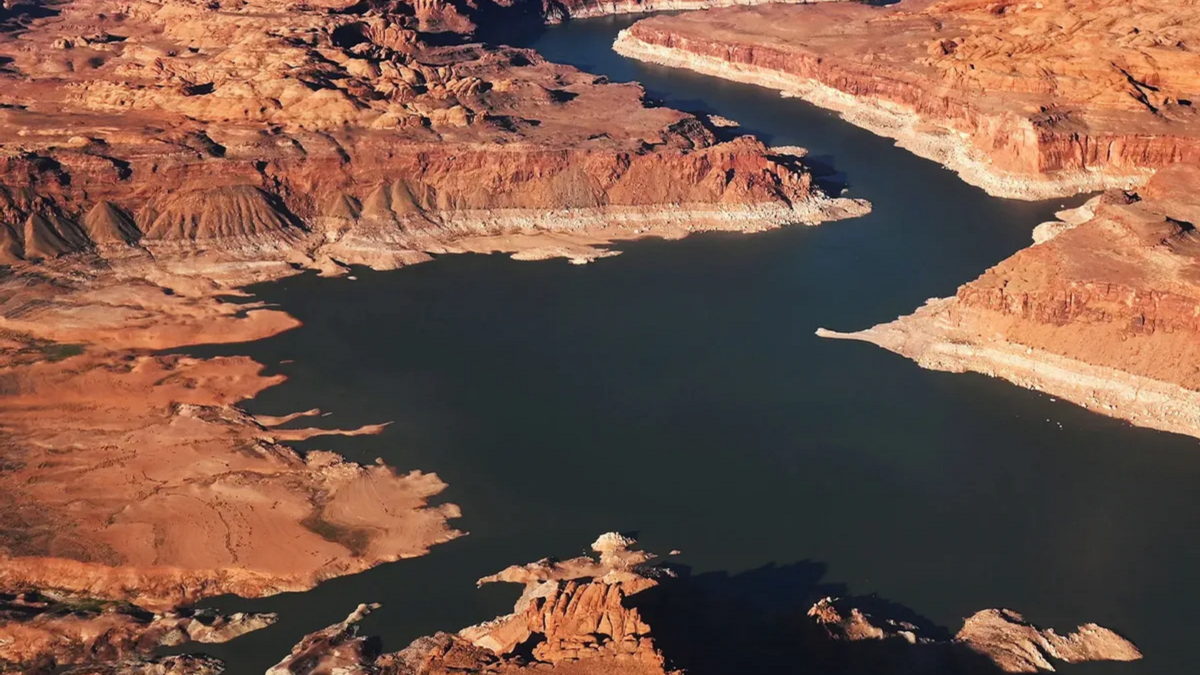India hit with deadly flooding and heat waves at the same time – Wheat prices exceed record high – “This is a real climate emergency”
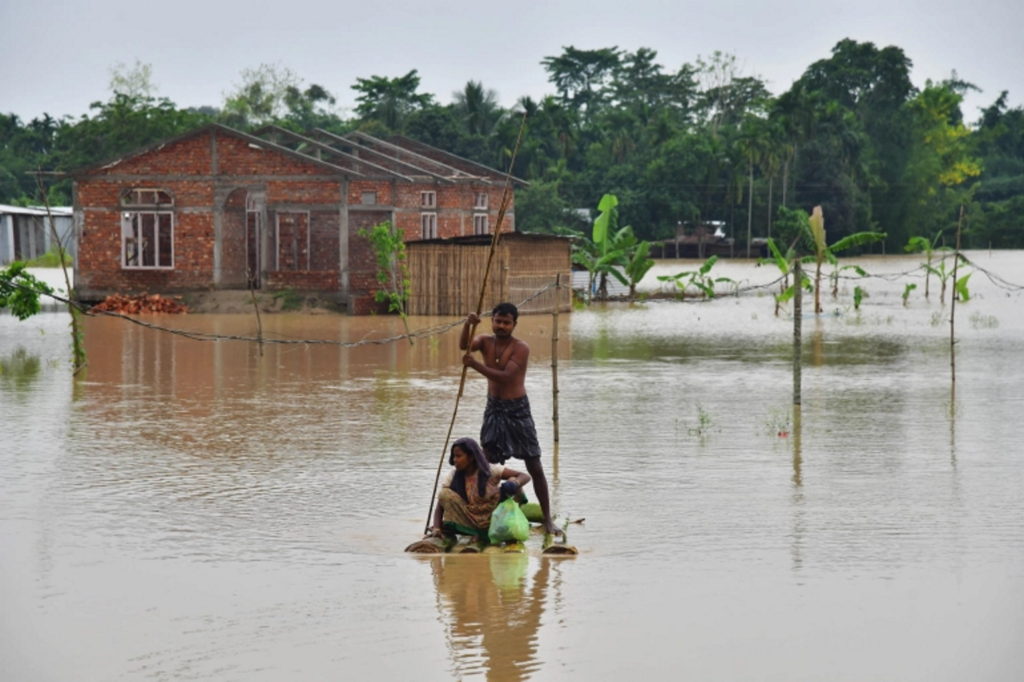
By Arshad R. Zargar
18 May 2022
NEW DELHI (CBS News) – While a huge swathe of India bakes under record-breaking heat, the vast country’s northeast is being devastated by floods. Heavy rains started lashing the Indian states of Assam and Arunachal Pradesh last week, triggering floods and mudslides that have washed away houses, fields of crops and bridges.
So far 11 deaths have been blamed on the flooding, and more than 400,000 people have been displaced as 700 villages have been inundated in Assam alone. At least 200,000 people in Assam’s Dima Hasao district were cut off on Wednesday, with all roads and bridges in and out blocked.
On Tuesday, authorities sent army troops to help with rescue and relief operations. Air Force helicopters evacuated people from a train that was left stranded on waterlogged tracks at a station.
“People don’t have drinking water, there’s limited food in stock, all forms of communications have been cut off and we don’t have any means of transportation as all the roads have been washed away by floods and landslides,” India’s prominent 10-year-old climate change activist Licypriya Kangujam, who lives in the Himalayan region, told CBS News. She spoke on the phone Wednesday from the tiny island nation of East Timor, where she was addressing lawmakers on climate change.
The Indian Meteorological Department has forecast “very heavy to extremely heavy” rain in the region for the next three days, which is expected to hamper the relief efforts.
A dramatic video posted on social media, shared by Kangujam and India’s Northeast Frontier Railway, shows the moment a mudslide washed away an empty train at Assam’s New Halflong station.
Flooding is common in northeast India, much of which sits in the foothills of the mighty Himalayas. Two years ago, flash floods in Uttarakhand state killed nearly 200 people.
Scientists say the Earth’s warming climate is speeding the rate at which Himalayan glaciers are melting, resulting in frequent floods.
The average 15-day rainfall for the month of May was witnessed in just 4-5 hours in the city. It is one of the heaviest rains that the city has witnessed in the month of May in the last 40-50 years. Naturally all the low-lying areas are flooded. This is happening over the last three to four decades in Bengaluru whenever it rains heavily. Though the relief works are ongoing, the rapid growth of the city is making it a tough task to find a comprehensive solution.
Karnataka chief minister Basavraj Bommai
“This is a real climate emergency,” Kangujam, India’s young climate activist, told CBS News.
Inspired by Greta Thunberg, she began campaigning for environmental action in 2018. The following year she spent a week outside India’s parliament, pressing Prime Minister Narendra Modi’s government to put a law on the books aimed at curbing climate change. She didn’t succeed in that bid, but she addressed a United Nations Climate Change Conference the same year, pushing other world leaders to take immediate action.
“World leaders are just delivering beautiful speeches with no real concrete climate actions yet,” she told CBS News. “Empty, false promises will not solve the global climate crisis.”
She said rich countries need to do more to fight climate change and accused world leaders of putting their political interests above the environment.
“Losing our planet is not like losing an election,” she told CBS News. [more]
India hit with deadly flooding and heat waves at the same time
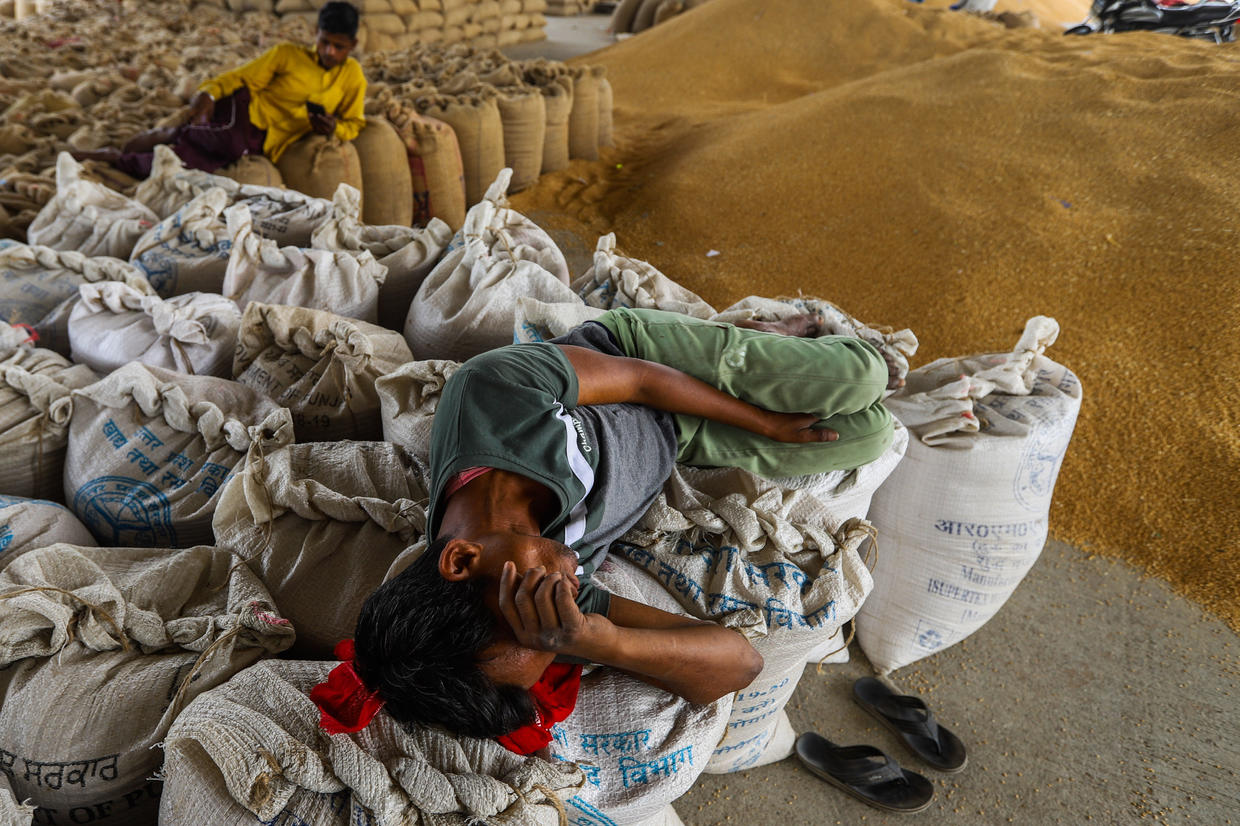
Wheat prices hit record high as India’s heat wave-driven export ban compounds Ukraine war supply woes
By Arshad R. Zargar
17 MAY 2022
NEW DELHI (CBS News) – India’s recent decision to severely restrict wheat exports amid a devastating heatwave has driven up global prices for the basic commodity to record levels, and drawn warnings of looming food shortages around the globe. The price of wheat futures rose by 5.9% Monday to touch an all-time high of $12.68 per half bushel in Chicago, before recovering slightly on Tuesday.
In the European market, the price rose to 436.25 euros per ton — up 4.68% during the day’s trading.
The price of the food staple has risen more than 60% this year for several reasons, but largely due to disruptions caused by the war in Ukraine. Together, Russia and Ukraine — long known as the “bread basket of Europe” — have accounted for almost a third of the world’s total wheat exports in recent years. Fertilizer shortages and poor harvests have contributed to the rising prices.
The government in India, the world’s second-largest wheat producer after China, banned private exports of wheat on May 13, saying the move was necessary to manage national food security amid the threat presented by the severe heat hitting the country.
An early, prolonged heat wave has sent temperatures soaring over 120 degrees Fahrenheit, killed dozens of people in India and Pakistan since March, and taken a huge toll on crops.
Last week, Indian climate scientist Vimal Mishra told CBS News that the current heat wave was “just a snapshot of what we will see in the next 20 to 30 years” if humanity doesn’t act fast to slow the rate at which the Earth’s climate is warming. He predicted that heat waves would become more frequent, last longer, and be more severe in the years to come.
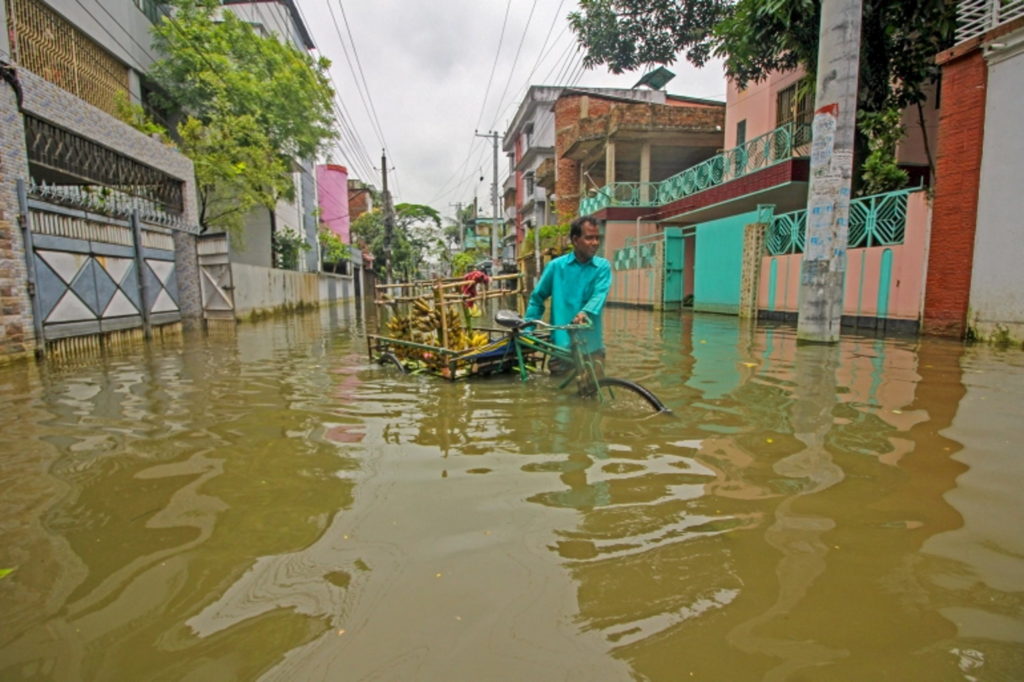
India has produced bumper wheat crops over the last five years and was aiming to export a record 10 million tons in 2022. The heat wave, and the export ban sparked by it, have disappointed commodity traders who’d hoped that Indian exports could at least partially make up for the shortfall caused by the Ukraine war.
India has exempted “neighboring and other vulnerable countries” from the ban “to meet their food security needs,” and leaders stress that it could be reversed if the food security picture improves, but the move is still drawing criticism.
“If everyone starts to impose export restrictions or to close markets, that would worsen the crisis,” German food and agriculture minister Cem Ozdemir said at a meeting of Group of Seven (G-7) agriculture ministers this week in his country.
Indian economist Ashok Gulati called India’s wheat export ban a “knee-jerk reaction” by the government in New Delhi, and an “implicit tax” on the country’s own distressed farmers.
But Devinder Sharma, India’s leading agriculture expert, defended the government’s export ban, arguing that the country must ensure it has enough food for its 1.4 billion people before it sells wheat abroad.
“Look at what the heat wave did to our crops this time,” Sharma told CBS News. “Who will be responsible if [monsoon] rains wreak havoc, too, or if some other climate factors hit our production next year?” [more]
Bommai blames record rain, rapid growth for flooding in Bengaluru
BENGALURU, 20 May 2022 (Hindustan Times) – Karnataka chief minister Basavaraj Bommai on Thursday blamed rains and the rapid growth of Bengaluru for the flooding seen in the city, absolving his government and the corporation of their roles in allowing this unregulated expansion that brings India’s IT capital on its knees every time it rains.
“The average 15-day rainfall for the month of May was witnessed in just 4-5 hours in the city. It is one of the heaviest rains that the city has witnessed in the month of May in the last 40-50 years. Naturally all the low-lying areas are flooded. This is happening over the last three to four decades in Bengaluru whenever it rains heavily. Though the relief works are ongoing, the rapid growth of the city is making it a tough task to find a comprehensive solution,” Bommai said.
The chief minister visited several localities of the city, including JC Nagar, Laggere wards in Mahalakshmi Layout assembly constituency, Nagavara Metro station, HBR 5th block and Hebbal STP plant, among other places.
The statements by Bommai come even as the 12 million residents of Bengaluru continue to express outrage on social media and other platforms against the government and the Bruhat Bengaluru Mahanagara Palike (BBMP, the city’s civic body) for its continued apathy, corruption and lack of concern for one of the biggest revenue earners for the state and country.
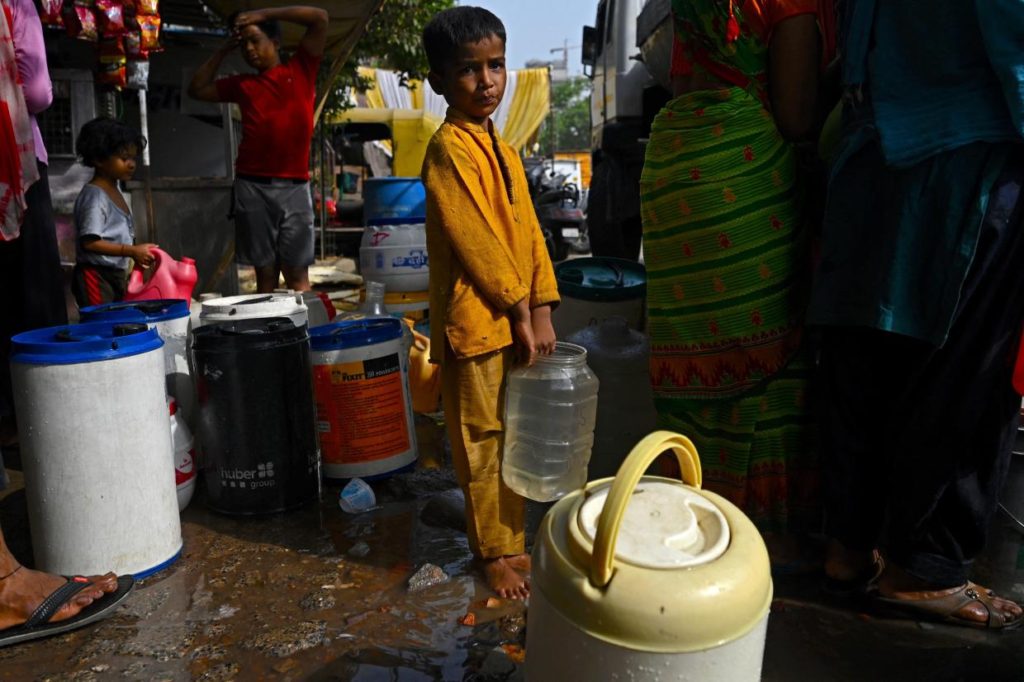
The Bharatiya Janata Party (BJP)-led government is also accused of delaying the conducting of the BBMP elections for at least 198 wards which gave been vacant since September 2020, leaving most of the decision making with the state government and officials.
Bommai on Thursday said that he had already set aside ₹1,600 crore for modernisation of stormwater drains (SWD) or Rajaklauves, which were originally intended to take in all the excess rainwater and channel them into the lakes.
However, the rapid and unchecked expansion has reduced the number of the lakes in the city, replacing it with high-rise apartments and housing, which get flooded even at the hint of rains.
“We had made many decisions to address the flooding problem in the city when I held a meeting with MLAs of Bengaluru when it rained last time. A decision was taken to develop stormwater drains (Rajakaluves). The DPR has been prepared and the plan has been included in the budget. Work orders would be issued soon. Bottlenecks and silt would be removed for smooth flow of water in these stormwater drains, ₹400 crore is being spent for the purpose,” the chief minister said.
Bommai added that all drains will be desilted — an annual exercise taken up around monsoons and after flooding-related damage makes headlines.
“Desilting and pumping out water in inundated areas have been taken up on war footing with involvement of Home Guards, BBMP staff and Civil Defence personnel,” he added.
Congress’ leader of the opposition, Siddaramaiah, too visited several parts of the city after rainwater flooded homes, offices, shops, destroying lives and livelihoods.
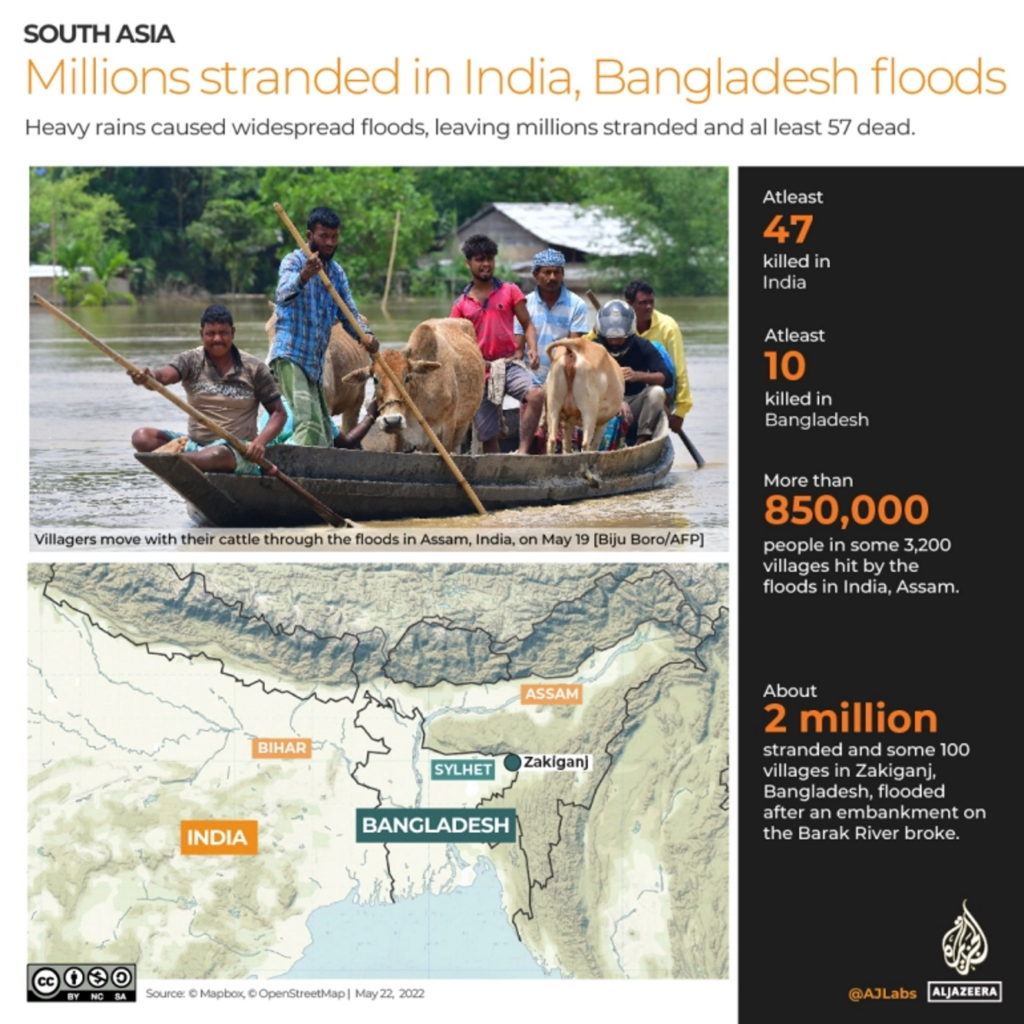
Bengaluru is the crown jewel of Karnataka and is known world over for its prowess in information technology, biotechnology, startups, aerospace and right talent pool but the residents and corporations working here have been at the mercy of widespread civic apathy.
Former chief minister of Karnataka and now BJP leader, SM Krishna, on Thursday wrote a letter to Bommai, raising concerns over the impact of the rains and civic apathy on ‘Brand Bengaluru’.
In his letter, Krishna, who was chief minister of Karnataka from 1999-2004, said that the city is one of the fastest growing in the world.
“The recent rain-related havoc has … posed a threat to ‘Brand Bengaluru’ image which might also send a wrong message to the potential investors across the world,” he said.
Former chief minister HD Kumaraswamy said a significant chunk of SWDs have been encroached.
“People have built homes on these encroached lands and these are not small houses but big apartment complexes and the two national parties have no courage to touch them,” Kumaraswamy said.
Bommai blames record rain, rapid growth for flooding in Bengaluru

